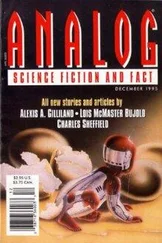“You are so anxious to have this apartment to yourselves,” I said to my family. “You have made yourselves cheap over a peasant who sits with one foot on the other. How would you pay the rent here without me? Don’t you understand that I can’t leave you?” At the same time, I wanted to run out on the balcony screaming “Come back!” but I was afraid of knocking the flowerpots over. I’ve forgotten why I wanted to mention this.

My daughter wept when the news reached us here in Cologne that Bibi had died. It was the first loss by death she had ever experienced, except for that of our old brown poodle, and it affected her to the point of fantasy. She accused me of having murdered Bibi; of having treated her like a servant; of having been jealous of her brains and her beauty (her beauty?); and, finally, of having driven her out of our house with my capricious demands, my moods, and my coldness.
Everyone knows what it is like now to be judged by spoiled, ignorant children. Of course we never considered Bibi a servant! That is a pure invention. From the very beginning — when we were, in fact, her employers — she ate at our table and called us Julius and Helga. There were hundreds of thousands of girls like Bibi in those days, just as poor and alone. No person was ever considered to blame for his own poverty or solitude. You would never have dreamed of hinting it could be his own fault. You never knew what that person’s past might be, or what unspoken grudge he might be hiding. There was also a joint past that lay all around us in heaps of charred stone. The streets still smelled of terror and ashes, particularly after rain. Every stone held down a ghost, or a frozen life, or a dreadful secret. No one was inferior, because everyone was. A social amnesty had been declared.
Bibi must have been in her early twenties then. She was a refugee, from Silesia. In the town she named as her birthplace everyone had died or run away. She had no friends, no family, and no money, but she must have been given some sort of education at one time, because she had been accepted in high school here, in the terminal class. How she got in is a mystery. There was no room for anyone, and students were selected like grains of sand. People of all ages were trying to go to school — middle-aged men, prisoners of war coming back and claiming an education. In those days, so many papers and documents had been burned that people like Bibi could say anything they liked about themselves. Still, she had passed some sort of entrance examination — she must have. She had also found a place to live, and she supported herself doing sewing and ironing and minding babies — whatever she could find. We had her Tuesday, Thursday, and Saturday, for housework; three evenings a week. Her dinner was part of her wages, but as the evening meal was nothing but soup she did not have to give up her ration tickets. After she had been with us for a while, one of her teachers told Julius that Bibi was brilliant. Yes, brilliant. Without any real culture, without … But brilliant all the same. As soon as Julius was certain it was true, he found a part-time job for Bibi in the first research laboratory they were establishing then at Possner. Possner was looking for bright young people with a promising future and no past. It was an incredible stroke of fortune for someone in Bibi’s situation. She stayed at Possner on that part-time basis until she published her thesis in 1955. (Possner sent her to the university.) After that she went on to a much, much better job. From the time she met Julius, Bibi had nothing but luck.
Her thesis was called “The Occurrence of Alkaloids in the” — in the something. In a word beginning with “A.” I could look it up — there must be twelve copies or even more down in the wine cellar. “The Occurrence” was nearly a book — eighty-two pages long, not counting the pages of thanks and the dedications. Julius has a whole page to himself: “To Doctor Engineer Julius Lauer, of the firm of Possner (Cologne), my Heartfelt Gratitude.” The copies are well bound in that brown paper that imitates bark. Possner must have paid.
Bibi was something of a friend, finally. My daughter called her Aunt and was taught to respect her. She even lived with us for a time — for ten years in our old house, and for several months in the house we have now. She emigrated to an American branch of Possner and she died over there.
I don’t think she ever wanted to marry. She never mentioned it. She had peculiar opinions and was no good at hiding what she thought. After the age of thirty she became insistent. She would insist on the same thing over and over — usually something to do with the harsh side of life. She felt shy about some ugly scars she had on her legs, and wore thick stockings even in summer, and would never go on a beach.
Even if I had ever considered Bibi less than myself, how could I have shown it? By having her eat in the kitchen alone? In the days when we met Bibi the kitchen was a privileged place, the only warm room anyone had. Julius worked nearly every evening then and I was glad to have Bibi’s company. As she sewed and ironed I sat nearby, reading, sometimes talking to her, wishing she would stop whistling and singing but not liking to say so. She had several odious habits. For instance, she owned only one pair of stockings and was afraid of wearing them out. As soon as she arrived she would take them off and drape them over the back of a chair. Once, Heidi, the old brown poodle we had, licked Bibi’s bare legs under the table.
“Heidi, you swine!” Bibi wailed. I have forgotten to say how funny she looked and sounded when she was young. She had short blond hair that stuck out like stiff flower petals, and she spoke with a coarse, droll, regional accent that turned her simplest remarks into comedy. “Heidi, you swine,” became a joke between Julius and me until the day he was informed she was brilliant. After that, I lost my bearings where Bibi was concerned, for now she was part of Possner, and Possner was also Julius, and neither Julius nor Possner was to be laughed at. Possner was a small industrial complex then — nothing compared with a great house such as Bayer; but to Julius it was a new force in the nation, an élite army for which he enlisted the best of recruits. Julius was, I suppose, a lieutenant in the industry-army. He knew he would go up and up as this new army grew. I knew it too, and that was why I had asked for help — why I had Bibi. I was afraid that if I became a housewife Julius would find me dull and would leave me behind. Every morning, instead of scrubbing and dusting, I read a newspaper. The papers were thin; the news was boring and censored, or, rather, “approved.” I would begin at the back, with the deaths and the cinema advertisements, and work forward to the political news. In the afternoon I walked Heidi and tried to read books belonging to Julius. Of that period of my “education” I remember long, sleepy winter afternoons, and I see myself trying to keep awake. I also spent hours in queues, because meat, clothing, and even matches were hard to find.
Like Bibi, I had no friends; I had no family, except Julius. I was not from Cologne but from Dortmund. Anyone who had ever known me or loved me had been killed in one period of seven weeks. I was a year or two older than Bibi — about twenty-four. I was not as pretty as my daughter is now, though my wedding picture shows me with soft chestnut hair. In the picture I look as though someone had just scolded me. I was nervous in those days and easily startled. I worried about gas escaping, burglars at the windows, and bicycles ridden by drunken criminals; I was also afraid of being thought too stupid for Julius and unworthy of being his wife.
Читать дальше













